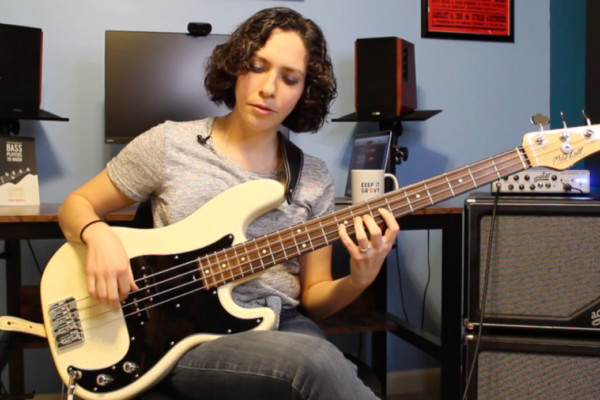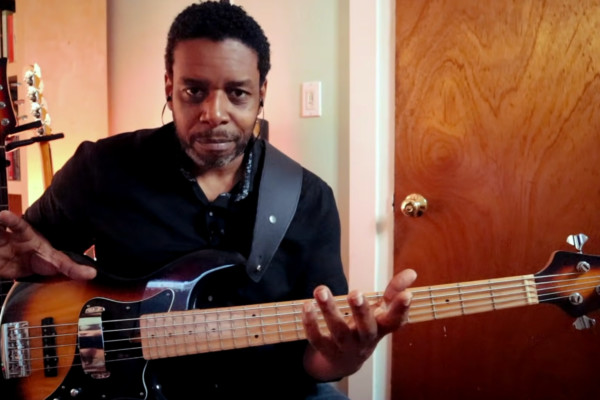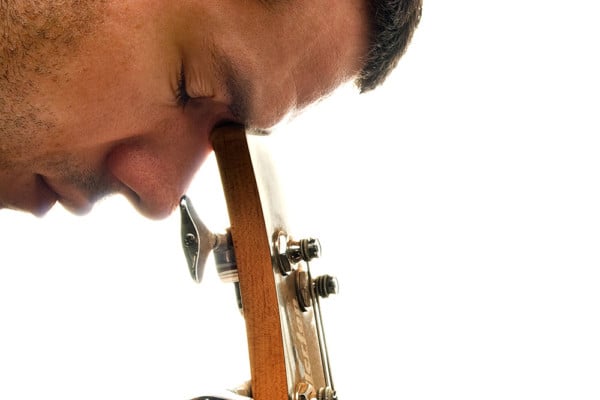Breaking Down Music: Start with the Songs You Love
 When it comes to music, we all have our favorite bands, our favorite songs, favorite singers, bass players and maybe even some guitar solos. Some of us develop a preference for certain genres; they shape our music library, our concert expenditures and our playing repertoire. It’s easy to know that we like something, mainly because we find ourselves singing along or grabbing our axe to dissect the bass part. Something deep down inside says “wow! This is great! I want to listen to it over and over again!”
When it comes to music, we all have our favorite bands, our favorite songs, favorite singers, bass players and maybe even some guitar solos. Some of us develop a preference for certain genres; they shape our music library, our concert expenditures and our playing repertoire. It’s easy to know that we like something, mainly because we find ourselves singing along or grabbing our axe to dissect the bass part. Something deep down inside says “wow! This is great! I want to listen to it over and over again!”
One thing leads to another, and suddenly we’re buying an entire artist’s catalogue or we become obsessed with discovering punk bands of New York’s Lower East Side between the years of 1978 and 1983. Discovering what we like, whether it’s an artist, a song or a genre is all well and good, but determining why we like it is a different story.
The “why” requires an academic approach to the music, one that breaks away from superlatives such as “awesome”, “epic”, “sick”, “crazy”, “face-melting” and/or “mind-blowing”. It involves a musical magnifying glass, where we pick apart and examine the essence of the music… the chord progressions, the tonal centers, the lyricism, the instrumentation and arrangements. Being able to identify and describe what we like, especially in musical terms, can be a huge asset.
Let’s talk about why…
As we begin this discussion, I want you to think about one of your favorite songs. Try and quantify what you like about them — maybe it’s the sound of the snare drum, the bass line, the vocal harmonies, the form of the song or the chord progression. Once you have an idea of what you like, label it. Figure out how to play the bass line, figure out the chord progression or closely examine the verses.
Here’s an example: One of my all time favorite tunes is Van Morrison’s “Crazy Love.” Does it have the most awesome, grooviest bassline? No, not really. Does it have great lyrics and my favorite chord progression? Yes. After listening to and playing this song over and over again, I discovered that I’m a sucker for the “one-to-three.” In this particular song, the chords go from a G Major (I) to a B minor (iii), and that movement happens to make a lot of harmonic sense to me. The same progression also drives some of my favorite tunes by The Band and Taylor Swift. Coincidence? I think not.
I’ve also discovered that as much as I enjoy the diatonic one-to-three, I’m equally (if not more so) drawn to the one-to-major (or dominant) three. In the key of G, this would be a G Major chord to a B Major or B7. The move to a major three chord is typical in soul, R&B and gospel music – think “Dock of the Bay” by Otis Redding or “Sweet Pea” by Amos Lee. It creates a “secondary dominant” that draws your ear towards the six chord and introduces color if you’re ascending to the four chord.
Ok, so now that I’ve officially theory-nerded out, let’s talk about why it’s important to recognize and identify this concept. First, being able to label this particular progression provides you with a great ear training reference. You’re familiar with the sound of your favorite harmonic movement(s), so your ears will perk up as soon as you hear it. You will frequently identify the chord change without an instrument in hand, or pick up on it quickly if you’re learning a song on the fly.
Second, it’s easier to remember a song you enjoy. This concept is similar to reading a book about a subject that you’re interested in… you’ll soak up the information or follow the story with greater ease. This can be a useful tool, especially if your mental vault contains hundreds of songs. Usually, you need something to trigger your memory, and your favorite progression may be just the thing. Plus, you never know when you’ll be called upon to play a particular song, so the ones with your favorite musical motif may be engrained a bit deeper.
When it comes to writing music, knowing some of your “why’s” can help steer you in the right direction. Your favorite chord progressions, feels or themes can provide inspiration for your own compositions. You also may aspire to write in a particular artist’s style, or with your favorite artist in mind. By understanding what you like in other songs, and recognizing the common denominator that spans across your favorite music, you can integrate these elements and begin to shape your personal voice.
And finally, understand the importance of communication and syntax. If you can use the proper musical terminology to describe what you like, or if you can interpret direction from someone else, then you’ll be higher up on the “pro” ladder. Let’s say you’re leading one of your favorite New Orleans groove tunes… telling the drummer that it’s got a second line feel will immediately give them direction. It’s a lot easier to verbally communicate the feel than it is to “air drum” a snare pattern. If you can give them some other kind of reference (such as another song with the same feel), then that can be a great clue as well.
So what’s the moral of this story? It’s simple. You like certain things… figure out why. Go beyond superlatives and broad terminology, expand your imagination and be willing to dig deeper into the music. It can be difficult to find the words to describe what it is that you like, because after all, it’s music. All I can say is, that Neon Trees song “Everybody Talks” is awesome! And, it’s got a major three chord in the second part of the chorus ;-)
Do you approach music this way? I’d love to hear how you do it. Please share in the comments.
Photo by Henry Spencer
Ryan Madora is a professional bass player, author, and educator living in Nashville, TN. In addition to touring and session work, she teaches private lessons and masterclasses to students of all levels. Visit her website to learn more!




not quite but it is a good tip I think (mostly for when I dive a bit deeper into music theory as I do now). What I did find out is that I like certain rythms. I wouldn’t be able to give them a name but I could give a description of likes and dislikes. But well maybe that is logical in a bassplayer too. To get into a new cd or unknown music I always listen to the drummer to get into it. I did that before playing bass too.
I like & sing all tunes in the key of B..Don’t know why.. even gives me galvanized skin responses.
weird..like Born to Run & Full Time lover – both in “B”.
that is a very nice article…not sure what is my favourite key yet but hope will find out soon.